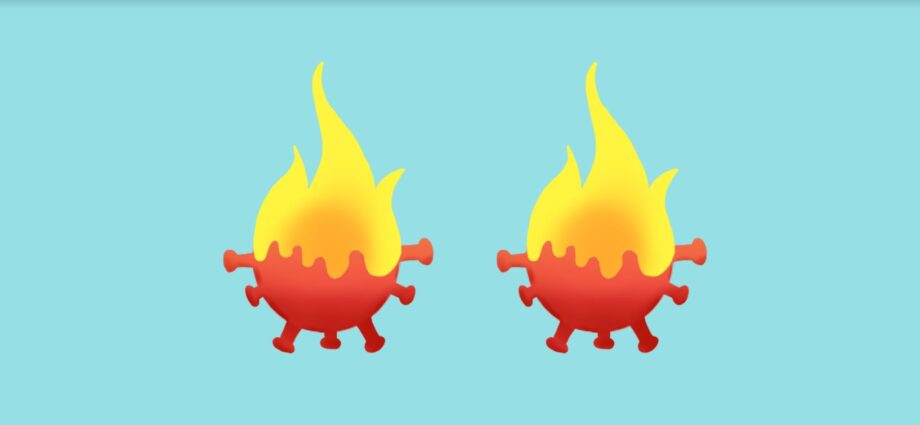By Margaux Marzuoli
Politicians’ responses to the Covid-19 pandemic have been a source of contention around the world and have given people new reasons to criticize those in power. The role of the Covid-19 pandemic in current social unrest is particularly relevant in the context of Guadeloupe and Martinique.
Indeed, these two overseas departments of France in the Caribbean have suffered extensively from the pandemic. On November 15th of 2021, the French government made COVID-19 vaccines mandatory for firefighters and healthcare workers in Guadeloupe and Martinique. This obligation from the central government was heavily opposed and sparked violent protests – rioting, looting, shots fired at police – in Guadeloupe. In response to this, Alexandre Rochatte, the Prefect of Guadalupe, announced a new curfew on November 19th. Gerald Darmanin, the French Minister of the Interior, subsequently announced that troops from France’s GIGN and RAID, the elite tactical forces of the gendarmerie and police, would be sent to Guadeloupe. Darmanin further declared that “the state will stand firm” in light of these protests. The following Monday, the 22nd, protests spread to Martinique and growing civil unrest led to the imposition of a curfew by Stanislas Cazelles, Martinique’s Prefect, on November 25th.
After strongly condemning the violence, Jean Castex, the French Prime Minister, called for dialogue to continue convincing and supporting healthcare workers concerned with the obligatory vaccine. Sébastien Lecornu, the French Minister of the Overseas, met with Guadeloupean officials and other ministers on the 25th and 26th of November. Emmanuel Macron, France’s president, also addressed this “explosive situation”, urging public order to be restored. He further stated that “the health of the French should not be used to lead political battles”, and asked not to “give in to lies and the manipulation by some people of the situation”.
A Deeper Problem
Nevertheless, the escalation of the protests in both departments has revealed that there is a deeper problem in the relationship between metropolitan France and the Antilles.
“The president needs to come to Guadeloupe if we are to lift the blockades” exclaims a young protester. Indeed, many people feel as though the Antilles has been abandoned by the central government. In discussing the ongoing situation, Zaka Toto, writer and historian from Martinique, describes a central government that is not interested in making up for the damage of colonialism. Claude Siar, a journalist from Radio France Internationale, and Yves Jego, former Secretary of Overseas, notably discuss how massive inequalities between the metropole and the islands have persisted ever since these former colonies were integrated as departments of France in 1947.
Professor of Political Science at the Université des Antilles, Justin Daniel also notes that inequalities within Guadeloupe and Martinique have yet to be dismantled. AJ+ français reports that there is twice as much poverty and unemployment on the two Caribbean islands than in the rest of the country; and that one-third of the population lives under 1000€ per month. Moreover, poverty is coupled with expensive costs of living. Sébastien Mathouraparsad, a lecturer of economics at the Université des Antilles, explains that these territories face several “handicaps”. Their insularity leads to higher costs of production thus raising the final price of products. Their smaller markets and lack of competition further contributes to the higher prices. Finally, L’octroi de mer – a tax on imported goods that has benefited local markets – has raised prices for consumers. It is estimated that an inhabitant pays 650€ more per year with this tax. Although, the metropole invests an average of 17€ billion into the Overseas Territories every year, Pf. Daniel maintains that these departments are trapped in an economic model that is unsuitable and face “extremely difficult situations”. Poverty and unemployment have left many young people with no option but to leave, accelerating the demographic shift upwards to an aging population in Martinique and Guadeloupe.
Claude Siar explains that these conditions have created “fertile grounds for contestation” and led to recurring social crises in 1952, 1967, 1974 and 2009.
New Tensions?
In addition to the social and cultural dimensions of this crisis, Pf. Daniel and Patricia Braflan Trobo, a sociologist and specialist of the Antilles, note that this crisis has been particularly exacerbated by identity. Indeed, many have started to question the legitimacy and competence of a government that operates 7,000 kilometers away. This doubt has been coupled with a growing presence of fake news, which has villinised the vaccine, and resulted in the opposition of the Antilles to the central government and “their vaccine”.
However, mistrust in the central government is not new. The Antilles are still scarred by the chlordecone scandal. Chlordecone is a pesticide that was used in banana cultivation in Guadeloupe and Martinique. It continued to be used on these islands, while being banned within the metropole due to its harmful impacts on human health and the environment. AJ+ français reports that this pesticide has been the cause of “massive cancers” in the population of Guadeloupe and Martinique. In 2018, Santé Publique France reported that “almost everyone living on the islands had chlordecone in their blood”.
Mistrust in the central government is also present in other departments of the Overseas Territories. Les Enfants de la Creuse refers to the events that unfolded from 1962 to 1984, where authorities deported around 1600 children from Réunion in order to repopulate rural areas in the metropole.
Ultimately, Zaka Toto argues that relations between the metropole and the Antilles need to be revisited. Despite low turnout in presidential elections in the Overseas Territories, opportunities to revisit this relationship arise with upcoming elections in April 2022. Yves Jego notes that French legislation is constantly adapted to the specificities of the Overseas Territories and Patricia Braflan Trobo asks: should the metropole continue to adapt to the territories or if a new political status should be considered?
Edited by Macklin Miezejeski, artwork by Oscar Laviolette

